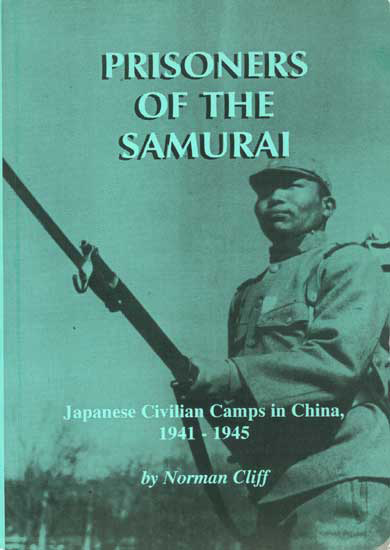by Norman Cliff
http://www.weihsien-paintings.org/NormanCliff/Books/Samurai/p-Frontcover.htm
Let’s face it. Life was good for the Westerners living in the 1930s in the principal cities of China. Back in the 19th century “unequal treaties” had been forced on the Central Kingdom, granting to the citizens of Western governments “extraterritoriality” (exemption from the laws of the land) and other wide ranging privileges.
 Big business had developed and large companies had been launched, covering shipping, banking, insurance, coal, oil, tobacco and chemical products. The China Taipans had spacious homes, modern cars and a staff of “cook boys” and “amahs”, with whom they communicated in that quaint language called “Pidgin English”. In leisure hours there was recreation at the local club - golf, tennis and swimming - as well as regular visits to the theatre. Life was equally good, but for different reasons, for the large missionary community - Protestant and Catholic - in China, who had little social contact with the Taipans, mildly disapproving of their way of life. After the Boxer Rising at the turn of the century the antagonism of the populace to the Christianity of the West had waned, and with their skilled assistance in the crises of floods, famines, epidemics and bombings the missionaries had gained the respect and trust of the Chinese people.
Big business had developed and large companies had been launched, covering shipping, banking, insurance, coal, oil, tobacco and chemical products. The China Taipans had spacious homes, modern cars and a staff of “cook boys” and “amahs”, with whom they communicated in that quaint language called “Pidgin English”. In leisure hours there was recreation at the local club - golf, tennis and swimming - as well as regular visits to the theatre. Life was equally good, but for different reasons, for the large missionary community - Protestant and Catholic - in China, who had little social contact with the Taipans, mildly disapproving of their way of life. After the Boxer Rising at the turn of the century the antagonism of the populace to the Christianity of the West had waned, and with their skilled assistance in the crises of floods, famines, epidemics and bombings the missionaries had gained the respect and trust of the Chinese people.
But for both merchant and missionary an ominous cloud had cast its black shadow over life in the Far East. Japan, with its ambitious programs to establish its “New Order in East Asia”, was slowly controlling the high seas of the China coast; its gunboats were patrolling the Yangzi River, and its business men were penetrating into the rapacious world of big business. Aware of this cat-and-mouse game, Western executives were sending progress reports to their headquarters in London and New York. Unmistakably a confrontation, bigger than the four year old Sino-Japanese War, was coming to the Orient.
The U.S.A. in particular was aware of its shaky relationship with Japan. American women in the business houses had been sent home while the men tried to continue. Britain too was on the alert. Notices in the Shanghai press strongly urged the wives and children of British business men to leave; and with the two year-old war being waged in Europe young men were being asked to return to Britain for conscription. In November and early December 1941 thousands of British and Americans left to go to their home countries. One British vessel, the CNC Anhwei, was to call at Manila to carry further passengers, and was caught by the outbreak of war, and all on board interned for the duration.
On the whole there was a half-hearted exodus. To the business community surely this agreeable way of life could not be coming to an end. Plans were in hand for the urgent destruction of code books and confidential reports in case war should come. These business men were determined to carry on somehow. In the missionary community many families also remained, but for different reasons. They wanted to stand with the Chinese people in the privations and hazards of war. For both groups the mystique of China and its people tugged at their hearts.
http://www.weihsien-paintings.org/NormanCliff/Books/Samurai/p-Frontcover.htm
#








